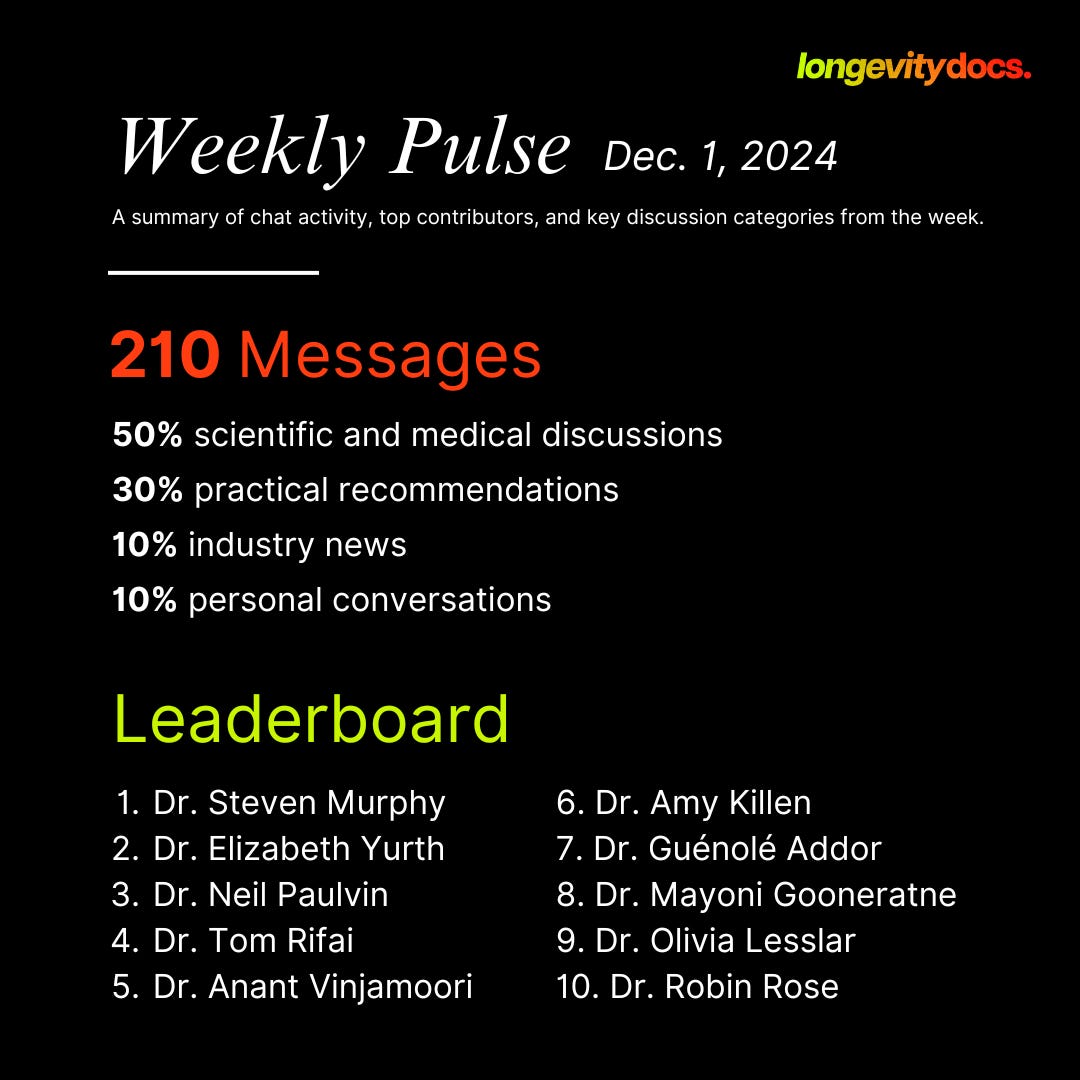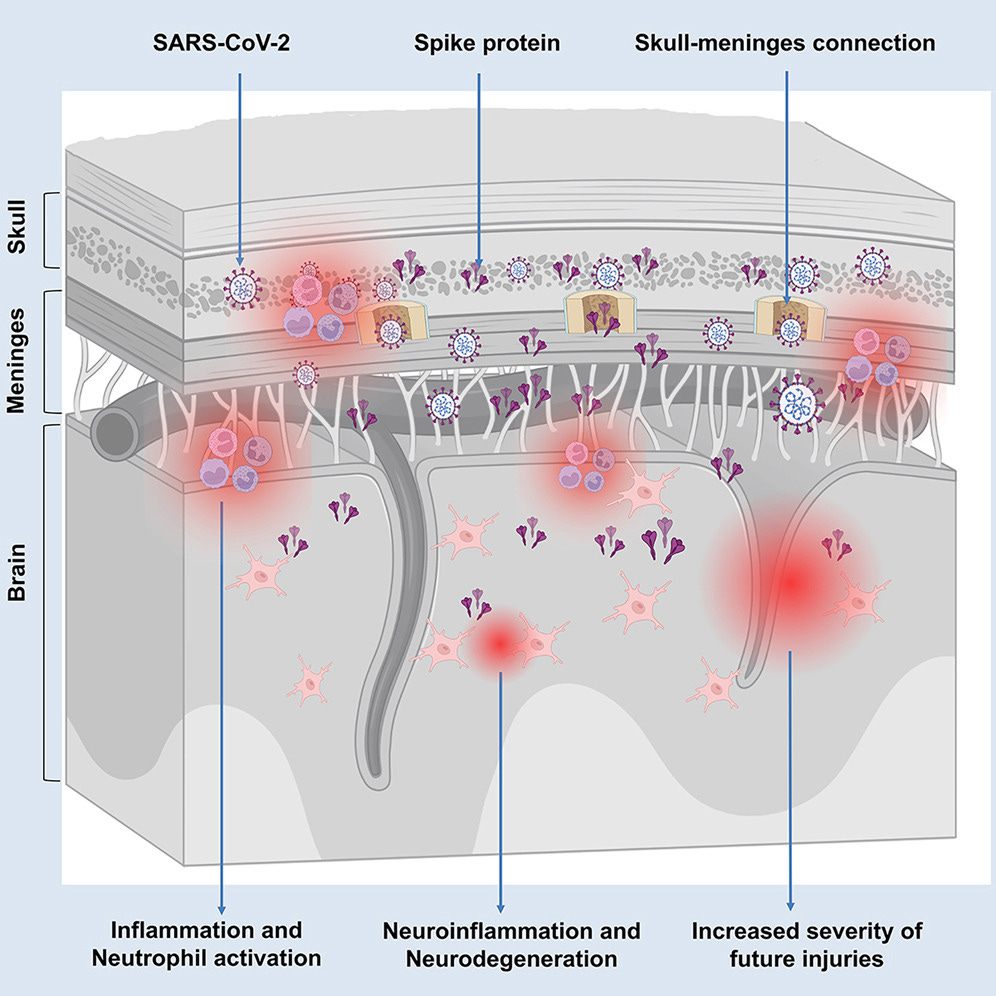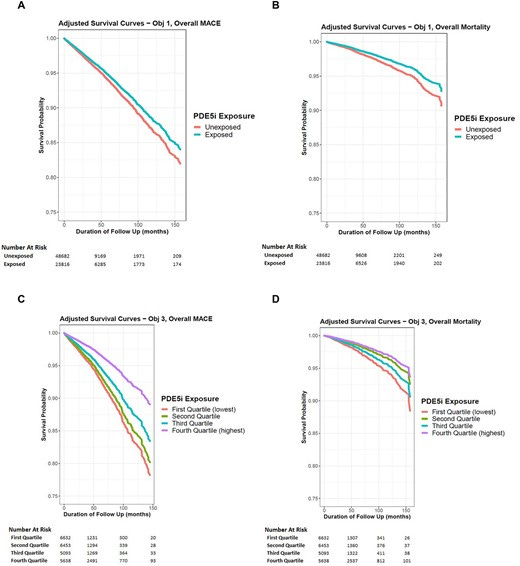GLP-1 Agonists RWE Registry • Members' Club • Is biological age testing worth it?• Longevity Docs Tour
Your sneak peek into the world of Longevity Docs.
Hey Docs,
During Thanksgiving, I took some time to reflect, and here are 5 takeaways I’m deeply thankful and grateful for:
Learning and growing alongside nearly 300 brilliant longevity doctors who inspire and push the boundaries of medicine.
Contributing to groundbreaking research that is shaping the future of longevity medicine.
Empowering and educating the next generation of physicians to carry forward the mission of health and longevity.
Building a global ecosystem of visionary doctors, entrepreneurs, and innovators, leveraging technology to expand access and resources worldwide.
Making a direct impact on lives, improving health, and unlocking human potential.
I’m truly honored to be on this journey with all of you. Together, we’re making history and shaping a healthier, brighter future.
With gratitude,
Dr. David Luu
🚀 What’s New This Week
1. GLP-1 Agonists RWE Registry
We’re launching a the first-ever Real-World Evidence Longevity Registry focused on GLP-1 agonists. Join the movement shaping real-world data in longevity. Physicians, email meriem@longevitydocs.org to get involved!
2. The Members’ Club
We’re beyond excited to announce that The Longevity Docs Club is now home to the world’s top longevity physicians! This exclusive, invitation-only community provides rare access to groundbreaking research, insider education, and opportunities to collaborate with the very best in the field.
3. Longevity Docs Meetups
Don’t miss our Longevity Docs Meetups in San Francisco, Los Angeles, Las Vegas, and New York! These exclusive gatherings are designed to help you build meaningful connections, share clinical insights, and collaborate with the best in the field.
This Week’s Highlights
👋 Community News
Weekly Pulse
🎓 Masterclass
Join us for a 60-minute masterclass with Dr. Abid Husain, a leading cardiologist and expert in longevity medicine, as he delves into the transformative potential of SGLT2 inhibitors. Originally developed for diabetes management, these innovative medications are now gaining attention for their remarkable benefits in heart and kidney health, and their exciting potential to enhance healthspan.
Don’t miss this opportunity to learn from one of the field’s top experts!
💬 Buzz in the Chat
Is Biological Age Worth It?
The discussion on biological age testing revolved around its scientific basis, practical utility, and philosophical perspectives on integrating it into longevity medicine. Here's a deeper exploration of the key points and takeaways:
Perspectives on Biological Age Testing
Skepticism on Clinical Relevance:
Critics' View:
Current bio-age tests lack precision and clinical relevance for individuals.
Foundational health optimization (e.g., advanced lipids, insulin sensitivity, blood pressure) remains the cornerstone of longevity strategies.
Biomarkers like HgbA1C or ApoB are more actionable compared to a composite biological age score.
Bio-age results may be more "interesting" than "actionable" in clinical practice.
Advocates for Research Applications:
Proponents' View:
Biological age tests are valuable as research tools to assess the efficacy of interventions over time.
They can highlight hidden health concerns (e.g., immunosenescence, DNA methylation) not evident through traditional biomarkers.
These tests can complement clinical assessments and lead to new diagnostic pathways.
Balanced Perspective:
Many docs agreed on the need to integrate biological age testing into broader diagnostic frameworks but stressed the importance of validating test methodologies and improving clinical utility.
Challenges Identified
Lack of Standardization:
No universally accepted metrics for bio-age testing.
Variability in results between different testing platforms.
Unclear Actionability:
Difficulty translating bio-age results into specific, actionable interventions.
Some questioned whether knowing bio-age directly improves patient outcomes.
Risk of Overemphasis:
Concerns about diverting attention from foundational health factors like lifestyle, social connections, and mental health.
Use Cases Highlighted
Complementing Diagnostics:
For advanced practitioners, bio-age tests can reveal unique insights:
For example, a high bio-age might lead to treatments targeting inflammation or senescence pathways.
Evaluating Intervention Impact:
Useful in research to measure the effectiveness of specific therapies (e.g., senolytics, mitochondrial boosters, peptides).
Education and Awareness:
Bio-age can be a powerful tool to engage patients in their longevity journey, motivating adherence to health protocols.
Future Directions
Technological Advancements:
Improved biomarkers for senescence, mitochondrial function, and epigenetic changes are needed to refine Biological age testing.
Calls for better tools like Mitoswab or metabolomics-based diagnostics.
Clinical Validation:
Rigorous studies to validate the predictive power of Biological age tests for health outcomes and longevity.
Integration with Personalized Medicine:
Biological age testing could be paired with genetics, advanced imaging, and wearable technologies for a comprehensive longevity profile.
Key Takeaways
Biological Age Testing is in its Infancy:
While promising, current tests are more research-oriented and lack widespread clinical applicability.
Foundational Health Remains Central:
Most contributors agreed that focusing on metabolic health, mental well-being, and social connections provides the most tangible longevity benefits.
The Future is Bright:
As biological age testing evolves, it could become a cornerstone of longevity medicine, helping clinicians personalize interventions and measure progress in real-time.
🩺 Publications
Persistence of Spike Protein Post-COVID
Increased plasma cytokine levels, blood-brain barrier disruption, and reactivation of latent herpes viruses have been correlated with cognitive symptoms associated with long COVID. The persistence of spike protein is also reported in patient plasma and immune cells, suggesting that the prolonged symptoms post-COVID-19 could stem from the enduring presence of viral proteins, alongside sustained systemic inflammation.
Cell Host & Microbe - Recommended by Dr. Sanjay Raisoni
PDE-5 Inhibitors and Cardiovascular Benefits
This retrospective cohort study found that phosphodiesterase type 5 inhibitors (PDE-5is), used to treat erectile dysfunction, were associated with a 13% lower incidence of major adverse cardiovascular events (MACE), including coronary revascularization, heart failure, and CV death. Men exposed to PDE-5is had a 25% lower overall mortality risk, with higher exposure correlating to greater risk reduction.
The Journal of Sexual Medicine - Recommended by Dr. Sajad Zalzala
HRT: Transdermal vs. Oral
Available evidence comparing the transdermal and oral administration routes for HRT is limited and of low quality, recommending further investigations. VTE risk can be considered the clearest and strongest clinical difference between the two administration routes, supporting the transdermal HRT as safer than the oral administration route.
Arch Gynecol. Obstet. - Recommended by Dr. Elizabeth Yurth
🌐 In the News
🗓️ Upcoming Events
San Francisco: December 6
Los Angeles: December 10
Las Vegas: December 14
New York: December 16
Cannes, France: June 24-26, 2025
Longevity Summit - December 3-4, Novato
Roundtable of Longevity Clinics - December 6-7, Novato
A4M Fest - December 13-15, Las Vegas
Founders Longevity Forum - Singapore, February 27-28, 2025
The Longevity Med Summit - Lisbon, May 6-8, 2025
Life Summit - Berlin, May 27-28, 2025
🚀 Join the Longevity Medicine Revolution and become part of the fastest-growing network of longevity doctors today!









